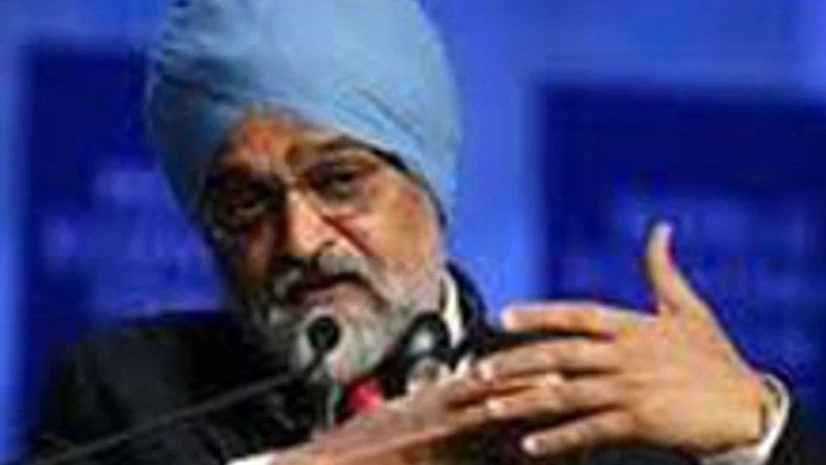If the country has to meet the projected growth of 8 per cent during the 12th Five Year Plan, the Indian economy should mark a growth of more than 9 per cent in the last two years of the plan period, given that the first year of the period is only posting a growth of 5 per cent, said Planning Commission Deputy Chairman Montek Singh Ahluwalia.
The government is currently working out some alternative ways of power pooling in order to solve the issue of price difference between the imported and domestic coal, to address the power issues, he added.
In an interactive meeting with the industry organised by The Southern India Chamber of Commerce and Industry (SICCI), he said, “...next year the budget says (the growth would be) 6.5 per cent. To be on track, we have to go well above 7 per cent in the year after, that is 2014-15 and then we have to get to over 9 per cent in the last two years in order to average 8 per cent.”
More From This Section
He argued that 1.5 per cent increase in growth is an unrealistic target. Current fiscal, the global economy itself was in a bad state and what India saw is a temporarily depressed growth and one year performance is not a real measure for the economic growth.
However, the issues on power, especially the bottlenecks in clearances for large projects, along with the availability of water in a long term are some of the matters that are to be addressed through the plan. While power crisis is very imminent and require immediate attention, water crisis also has to be addressed though there is some more time to address that.
Some alternative ways of price pooling is being worked out in terms of bringing down the difference between imported coal and domestic coal, considering that the country has to rely more on imported coal in the current situation.
While regulatory clearances like the environmental clearance for power projects and large projects are dragging the projects long term, the availabiltiy of coal and gas are also issues to be looked into. For instance, during the 10th Five Year Plan, 21,000 MW of capacity generation was added in the country, while it was 54,000 MW in the 11th five year plan which ended in 2011-12. Even in that, just in the last year of the plan period, in 2011-12, around 22,000 MW which is more than the total capacity addition in the 10th plan period, was added to the generation capacity. However, the availability of coal and gas is not upto meet this demand.
Price pooling in gas is also necessary, since the price difference between the imported and domestic gas is much higher. The inability to generate power is a specific new problem that has emerged in the country in the recent years, he added.
The availability of infrastructure including quality power, road connectivity are needed to create a competitive environment to bring up the small and medium sector companies to the fore and the new fiscal year, 2013-14, the government is trying to make the infrastructure story look very good, he added.
Ahluwalia added that the short term fiscal measures of Reserve Bank of India (RBI) would not bring the real solution for the crisis, but could make a feeling among the people that the fiscal space is getting better. He added that the country has to rely on overseas funds for growth for next two to three years, which would have impact on current account deficit, which generally would look comfortable at 2.5 per cent.
However, the country has an opportunity in attracting more investment since the interest rate in US and Europe are going to be low for the near future.
Faster clearance for large, delayed projects
The Cabinet Committee on Investment, set up in January to give clearance to large projects which has been delayed due to various regulatory issues,would clear a number of projects in next few weeks, says Planning Commission Deputy Chairman Montek Singh Ahluwalia.
Speaking about the issues in getting clearances including the environmental clearances for large projects, which are not easy to get, he said, “My hope is that the cabinet committee on investments in the next few weeks will demonstrate that a number of these projects can be cleared.”
It may be noted that according to latest reports, the government has approved Rs 74,000 crore worth projects in the last two months, mostly in the infrastructure and energy sectors, which were not able to be implemented due to various clearances.

)
